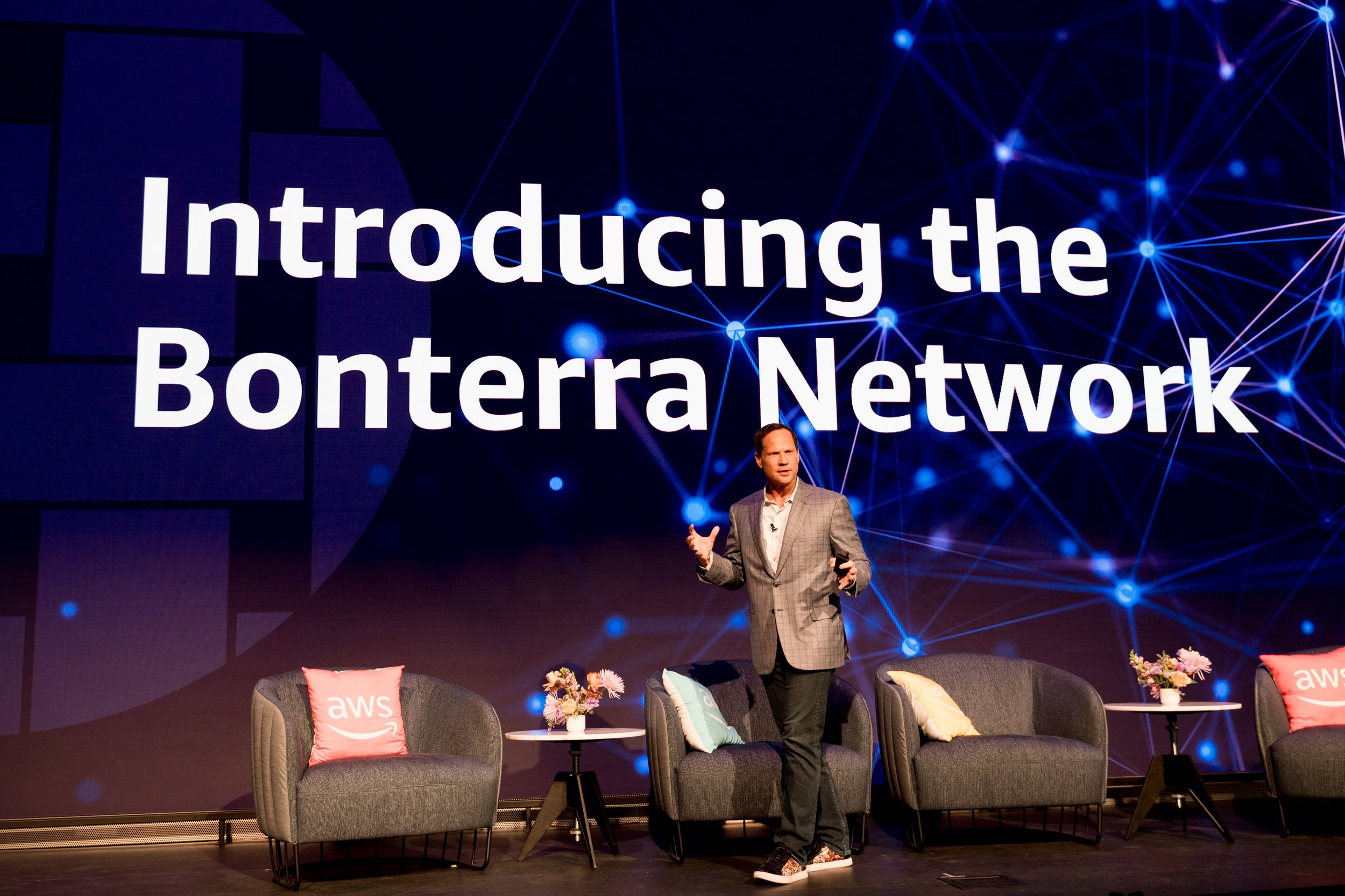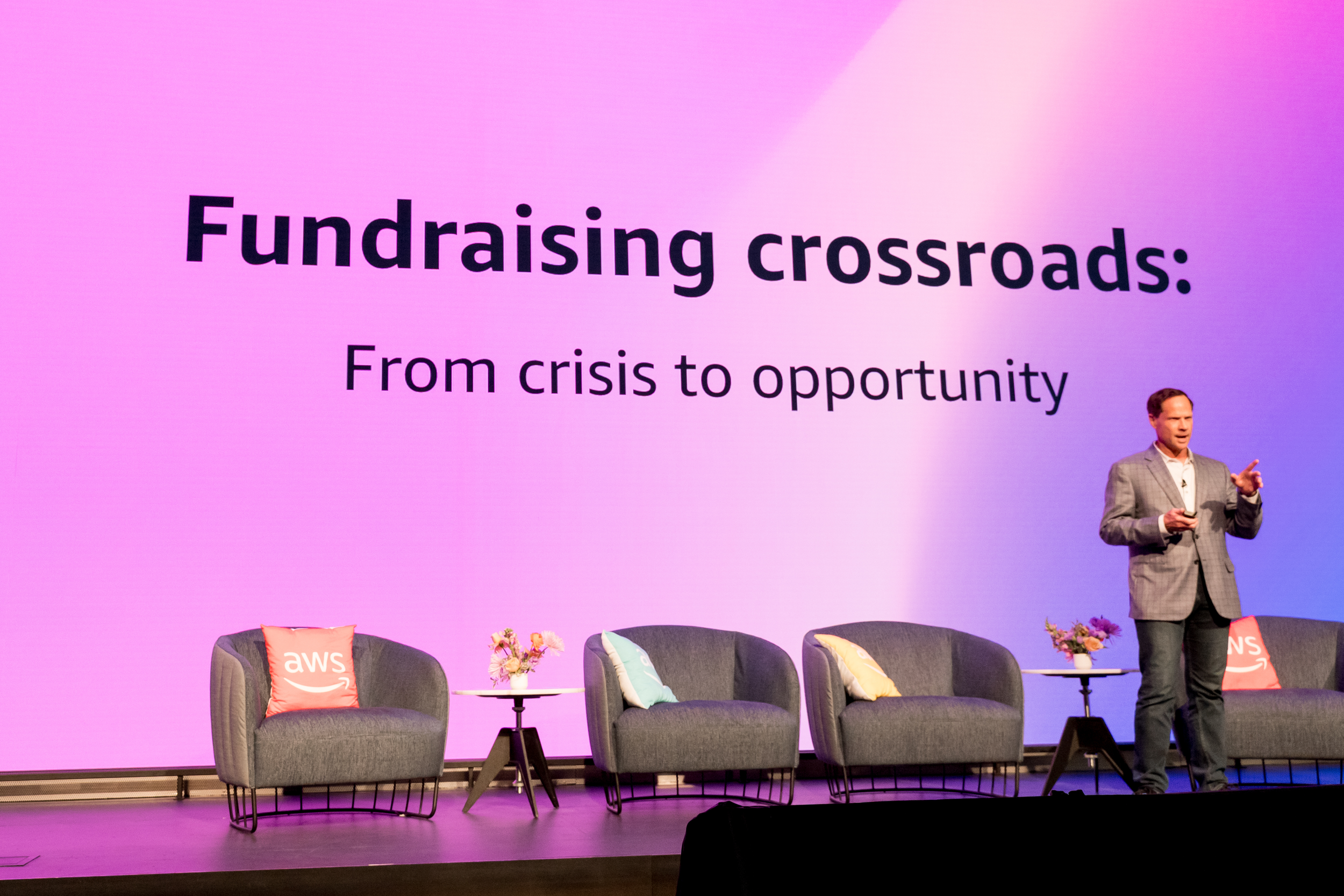Scott Brighton On Building Scalable Digital Infrastructure To Strengthen The Social Impact Ecosystem
Scott Brighton is CEO of Bonterra, a social good software company that helps non-profits, charitable foundations, and socially responsible companies raise more, give more, and get more for their missions.
He is a passionate believer in “doing well by doing good,” building successful companies that change the world for the better.
As CEO Scott plays an integral role in the development and execution of Bonterra’s vision and strategic framework, ensuring that social good organisations have best-in-class technology to lead the industry forward.
Over his two-decade career as a software industry CEO, Scott has become one of the industry’s leaders in merging complex software businesses and accelerating their growth, bringing together products, people, and cultures to amplify their impact.
Previously, Scott served as President and CEO of Aurea Software. Scott has also held notable leadership tenures with leading technology brands, serving as the CEO of Artemis International and as President of Trilogy Software.
Scott currently resides in Austin, TX, and in 2023 Scott co-founded a non-profit foundation dedicated to education with his wife, Coleen Brighton, a seasoned non-profit executive director—demonstrating that his passion for the intersection of philanthropy and entrepreneurship extends beyond his role as CEO.
Scott discusses how scalable software and mission-aligned technology is transforming the social impact sector, and helping resource constrained organisations overcome systemic barriers while driving sustainable, measurable impact.
Highlights from the interview (listen to the podcast for full details)
[Indio Myles] - To start off, can you please share a bit about your background and what led you to work in social impact and tech for good?
[Scott Brighton] - I’ve been a technologist for most of my life. I started my career as a software engineer, and for the last 15 years, I’ve been the CEO of various B2B software companies. Back in 2023, I was looking for a new adventure, more specifically with a software company or platform with the potential to transform large markets.
I actually wasn’t terribly familiar with the social good sector when I stumbled across Bonterra, but my wife has long been the executive director of a non-profit here in Austin, Texas, focused on educational equity. Through osmosis, I gained an appreciation for the struggles her organisation faced with technology.
The challenge in this sector is that most software companies are very small, which means the average non-profit has to stitch together products from multiple providers. It makes life very complicated.
Bonterra offered a terrific opportunity to create a scaled organisation that could solve this problem. It was a great chance to unite my passion for technology with the ability to make a meaningful impact in the world.
As the CEO of Bonterra, can you share more about the organisation and how it’s creating technological solutions for social impact businesses?
We have a number of different products, but if I were to boil it down, we serve two major markets. One is non-profits: we provide software that helps them fundraise, manage donor relationships, and manage their resources.
That might include operations in the field, such as running a homeless shelter. Importantly, our software also enables these organisations to report on their impact outcomes to funders. For example, how many homeless people have been sheltered.
The second market we serve is funders themselves. These are corporations, large foundations, and public sector organisations that are giving money away or engaging their employees in volunteerism efforts.
What we’re really trying to do is solve the number one challenge for funders: finding cause-based organisations to support. At the same time, we help non-profits find funders they can build sustained relationships with. In essence, we’re connecting funders and non-profits so they can collaborate to address the world’s biggest problems.
You work with many social enterprises and organisations trying to create impact. In helping them adopt technology, what unique challenges do you see when they try to streamline their operations?
One thing I didn’t fully appreciate before entering this industry was just how resource constrained the average non-profit is. If you look at a well-run for-profit business, it typically operates at around 25 to 30% profit margins.
In contrast, social good organisations are often expected to function on what’s effectively 80% profit margins, meaning they’re expected to spend only 20 to 25% of revenue on what’s considered “overhead.” This results in very little investment into the organisation itself and its growth, development, and improvement. A for-profit business might spend 5-10% of its revenue on technology to improve operations. A non-profit can’t do that, because that would represent half their operating budget.
The big challenge we face at Bonterra is making things easier and simpler so that we don’t require the same level of investment in users, training, data handling, and complex workflows. That’s what makes this sector uniquely challenging from a technology perspective.
How can purpose-driven organisations balance scale and profits while maintaining mission alignment?
One of our core values at Bonterra is “do well by doing good.” What we mean by that is we can’t allow our mission of doing great in the world to conflict with running a good business. Those two things have to be harmonised and aligned. When they are aligned and you’re running a good business, we attract more customers and investor capital. All of those resources are then reinvested into things like product development and customer support, which further amplifies the impact we can make in the world.
Our model has to be a virtuous circle between impact and business. If we allow those two elements to be in conflict, we’re going to fail. There’s a great book I’d recommend to your audience called Impact by Sir Ronald Cohen, who happens to be the chairman of one of the firms that invests in Bonterra.
The book explores how to create a capitalist structure where impact outcomes are equivalent to financial outcomes in terms of investment. That philosophy is something we’re trying to live every day at Bonterra.
You’ve led several tech ventures in your career. What are some of your biggest learnings, and are there any insights that relate specifically to impact?
One of the biggest learnings, something that might seem obvious to many of your listeners but is easy to forget in the software world, is that technology is only part of the solution. Often that’s not even the biggest part.
When a customer or prospective customer reaches out to us, they might say they want to buy fundraising software. But what they really want is to solve their fundraising problem. We believe technology plays a vital role because it can enable scale, automation, decision support, and other great things, but that alone isn’t enough.
That’s why we also provide fundraising coaches to help customers design effective programs. We offer webinars, communities, and other services alongside the software.
For us, success means the customer has raised more money by the end of the year. If they have, then we’ve done our job. It doesn’t matter how many awards our software wins, what matters is whether it has had the intended impact.
In the social good space especially, impact almost always involves more than just software, particularly given the resource constraints these organisations face.
Where do you see major opportunities for technology to further accelerate the impact of social enterprises, non-profits, or purpose-led businesses?
The rise of generative AI, and more specifically, Agentic AI over the past year, represents a profound opportunity across many industries, but particularly within the social good sector.
For those unfamiliar, Agentic AI refers to AI-powered services that can perform work either autonomously or semi-autonomously. It’s not inconceivable. In fact, it’s something we’re actively working on. You could soon have Agentic fundraisers. These AI tools could handle fundraising tasks targeted at very small donors, tasks that many resource-constrained non-profits currently don’t have the capacity to manage.
What this enables is a vast simplification of operations and, more importantly, a real expansion of capacity. With Agentic AI, the traditional software interface effectively disappears. Instead, the agent does the work and reports back to the human, typically a fundraiser, on what it has accomplished, what questions it’s answered, or what programs it has run.
I believe this shift could be absolutely transformative for non-profits. For the first time, technology would be multiplying their capacity rather than absorbing it through complexity and training requirements.
What inspiring projects or initiatives have you come across recently that are creating a positive change?
One initiative we’re currently working on (and I’m very excited about) relates to the challenge of enabling funders to give away large sums of money effectively. We’re partnering with a major foundation that wants to address a big social problem: community violence.
This is not a challenge that can be solved by giving to one, two, or even three non-profits. It has to be addressed from multiple angles and across different root causes. There are issues related to justice reform, education, healthcare, and more.
What we’re building is a software-powered solution that will enable dozens, and ultimately hundreds, of non-profits working in these various domains to collaborate effectively. That collaboration hinges on a shared language, how we define and measure success and orchestrate handoffs between organisations. Everyone involved needs to see and understand the problem in the same way.
If we can get that right, it enables large funders to confidently invest not just tens, but potentially hundreds of millions of dollars into these challenges and actually move the needle.
What excites us is that this approach turns what is traditionally viewed as a weakness of the non-profit sector, the fact that it’s made up of many small, fragmented organisations, into a strength. When these small organisations collaborate, their deep grassroots connections become a powerful advantage. Getting them all working together could be a real breakthrough for tackling complex social problems.
To finish off, what books or resources would you recommend to our audience?
One book I’d recommend is Impromptu: Amplifying Our Humanity Through AI by Reid Hoffman. In the non-profit and social good sectors, we often encounter hesitancy (or even concern) about what AI represents.
This book does a great job of demystifying AI. It also explores many of the social and societal impacts that our customers are actively thinking about. It’s a thoughtful and timely treatment of one of the most important topics of our era.
Initiatives, Resources and people mentioned on the podcast
Recommended books
Impact: Reshaping Capitalism to Drive Real Change by Sir Ronald Cohen
Impromptu: Amplifying Our Humanity Through AI by Reid Hoffman








